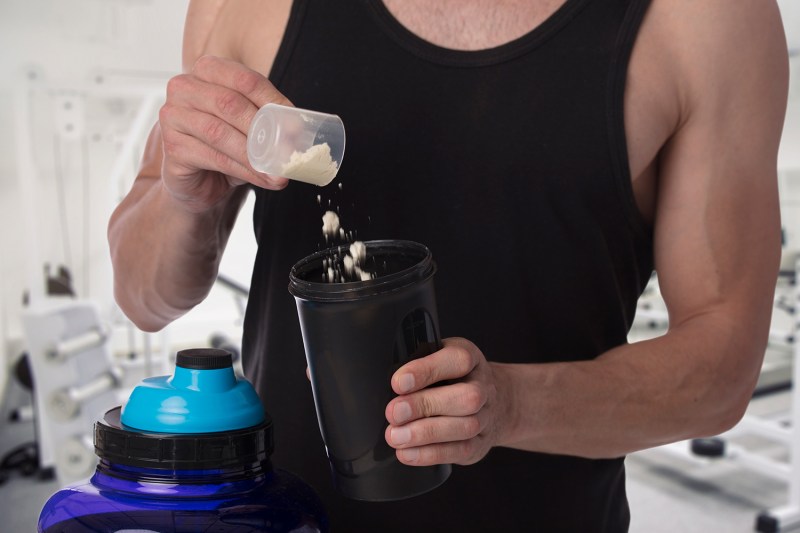In fitness and nutrition, whey protein powder is a staple for many. As a trainer, my clients are constantly asking me what type of protein powder is best or if they should even use it at all. When it comes to whey protein, there are three different forms — whey protein concentrate, isolate, and hydrolysate.
Whey protein concentrate (simply called whey protein by many) and whey protein isolate are the most popular, with isolate having a higher protein concentration.
For many fitness enthusiasts, “whey protein vs. isolate” is a popular comparison. To make a well-informed choice, you need to know everything about both forms of protein powder, and that’s exactly what we’ve provided below. Let’s get into it.
What is whey protein?

Whey protein is a high-quality protein derived from the liquid byproduct of making cheese. After separation, whey is processed into a powder that retains essential amino acids, making it a complete protein source.
Basic whey protein often contains additional nutrients like carbohydrates, fats, and lactose, making it a versatile option for most people. However, packaged whey protein comes in different forms, and each of them differs in protein content and processing. The two most popular forms are whey concentrate and isolate.
What is isolate protein?

Whey protein isolate is a more refined version of whey protein. It goes through additional processing to remove most of the carbohydrates, fats, and lactose. According to a 2024 PubMed paper, this extra processing increases the amount of protein in whey isolate to 90 to 95 percent.
Isolate protein not only has more protein but is also a leaner option with fewer calories. This makes it ideal for individuals looking for a pure protein source with minimal extras.
What are the benefits of protein powder?

Supports muscle growth and recovery
Protein powder provides essential amino acids, which stimulate muscle repair and growth after exercise. It’s an efficient way to meet protein needs, particularly for athletes and fitness enthusiasts.
Convenient and easy to digest
Protein powder can be prepared quickly and is ideal for people with busy lifestyles. It’s also a great option for those who struggle to meet their protein requirements through whole foods.
Aids weight management and loss
Protein helps control appetite by increasing feelings of satiety, which can reduce overall calorie intake. It also supports fat loss while preserving lean muscle mass during calorie deficits.
Which protein form is better for weight loss?

All protein forms are effective for weight loss. Another PubMed paper states that higher protein diets “have proved efficacious in preserving muscle mass during weight loss.” Protein keeps you satiated and also mitigates muscle loss during a calorie deficit. Any source of protein would aid weight loss as long as you’re in a calorie deficit.
Nonetheless, high-protein, low-calorie foods make calorie deficits easier, and among the forms of protein powder, whey protein isolate is the one with the least amount of calories and the most protein. For this reason, the best protein form for weight loss is typically whey protein isolate.
Isolate is low in fat, carbohydrates, and lactose while being high in protein, making it ideal for supporting muscle maintenance and repair without adding unnecessary calories.
Whey protein also generally helps you feel full longer, reducing appetite and aiding calorie control. For those who prefer plant-based options, pea protein or other plant-based protein powders are also effective for weight loss.
Which protein form is better for building muscle?

Both whey protein and isolate are excellent for muscle building, but isolate may have a slight edge for those seeking fast absorption and a high protein-to-calorie ratio. Whey protein concentrate or standard whey protein, on the other hand, is more cost-effective and still provides the necessary amino acids for muscle growth, making it suitable for beginners and those on a budget.
Who should avoid using protein powder?

Protein powder should be avoided or used cautiously by the following groups:
- Individuals with kidney issues: Excessive protein can strain the kidneys, especially if they’re already compromised. People with kidney issues are typically advised to tone down their protein intake.
- Those with allergies or intolerances: People allergic to dairy should avoid whey or casein protein. Lactose-intolerant individuals may need lactose-free options like whey isolate or plant-based powders.
- People with certain medical conditions: Some conditions, like liver disease, may require limiting protein intake.
- Pregnant or breastfeeding women: Consultation with a healthcare provider is recommended to ensure safe use.
- Children: Protein powder is not harmful to children. However, unless prescribed by a doctor, children generally do not need protein powders and should focus on whole food sources. They can typically get enough protein from these sources.
Frequently asked questions

Is whey isolate better than standard whey?
Whey isolate is better for those seeking a higher protein concentration with fewer calories, carbs, and fats. Standard whey, however, offers a balanced nutrient profile suitable for general use and is often more affordable.
Is whey isolate better than whey impact?
“Whey Impact” or “Impact Whey Protein” is a protein powder brand that makes both whey protein concentrate and isolate. Whey isolate’s higher purity and faster absorption make it superior for those with specific dietary needs or muscle-building goals.
However, whey concentrate is also sufficient for general muscle building and other fitness and health goals. The isolate option simply has more protein, less fats and carbs, and faster absorption.
What is the difference between whey isolate and whey protein?
The primary difference lies in processing. Whey isolate goes through additional refinement to remove most fats and carbs, resulting in higher protein content and fewer calories compared to standard whey protein, which retains more of its natural nutrients.




